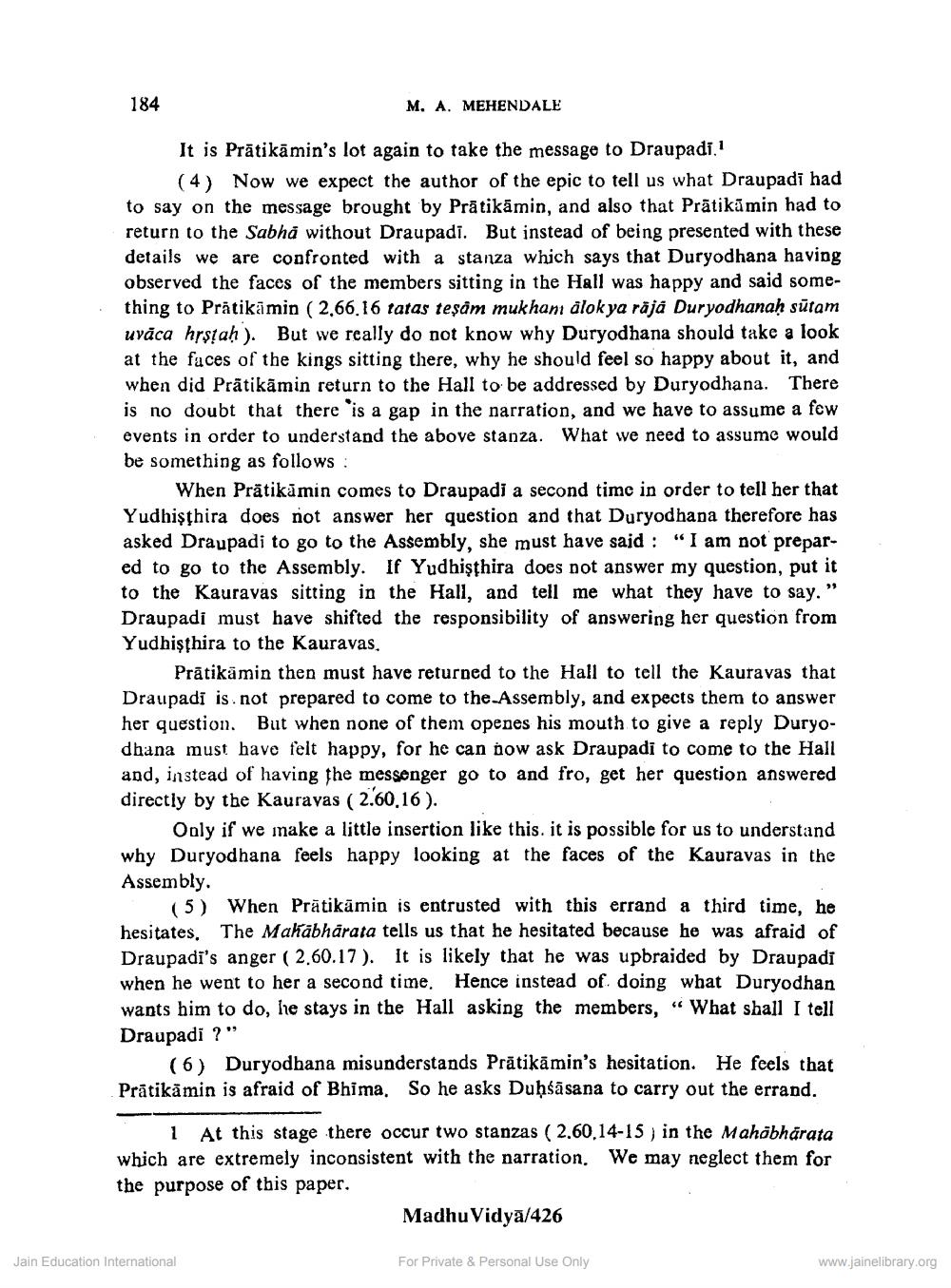________________
184
M. A. MEHENDALE
It is Prātikāmin's lot again to take the message to Draupadi."
(4) Now we expect the author of the epic to tell us what Draupadi had to say on the message brought by Prātikāmin, and also that Prātikāmin had to return to the Sabha without Draupadi. But instead of being presented with these details we are confronted with a stanza which says that Duryodhana having observed the faces of the members sitting in the Hall was happy and said something to Prātikāmin (2.66.16 tatas teșâm mukhan alok ya räjä Duryodhanaḥ sūtam uvāca hrsťah). But we really do not know why Duryodhana should take a look at the faces of the kings sitting there, why he should feel so happy about it, and when did Prätikāmin return to the Hall to be addressed by Duryodhana. There is no doubt that there is a gap in the narration, and we have to assume a few events in order to understand the above stanza. What we need to assume would be something as follows:
When Prätikāmin comes to Draupadi a second time in order to tell her that Yudhişthira does not answer her question and that Duryodhana therefore has asked Draupadi to go to the Assembly, she must have said: "I am not prepared to go to the Assembly. If Yudhişthira does not answer my question, put it to the Kauravas sitting in the Hall, and tell me what they have to say." Draupadi must have shifted the responsibility of answering her question from Yudhisthira to the Kauravas.
Prātikāmin then must have returned to the Hall to tell the Kauravas that Draupadi is not prepared to come to the Assembly, and expects them to answer her question. But when none of them openes his mouth to give a reply Duryodhana must have felt happy, for he can now ask Draupadi to come to the Hall and, instead of having the messenger go to and fro, get her question answered directly by the Kauravas (2.60.16).
Only if we inake a little insertion like this. it is possible for us to understand why Duryodhana feels happy looking at the faces of the Kauravas in the Assembly.
(5) When Prātikāmin is entrusted with this errand a third time, he hesitates. The Mahabharata tells us that he hesitated because he was afraid of Draupadi's anger (2.60.17). It is likely that he was upbraided by Draupadi when he went to her a second time. Hence instead of doing what Duryodhan wants him to do, he stays in the Hall asking the members, “What shall I tell Draupadi ?"
(6) Duryodhana misunderstands Prātikāmin's hesitation. He feels that Prātikāmin is afraid of Bhima. So he asks Duḥśāsana to carry out the errand.
1 At this stage there occur two stanzas (2.60.14-15 ) in the Mahābhārata which are extremely inconsistent with the narration. We may neglect them for the purpose of this paper.
Madhu Vidya/426
Jain Education International
For Private & Personal Use Only
www.jainelibrary.org




